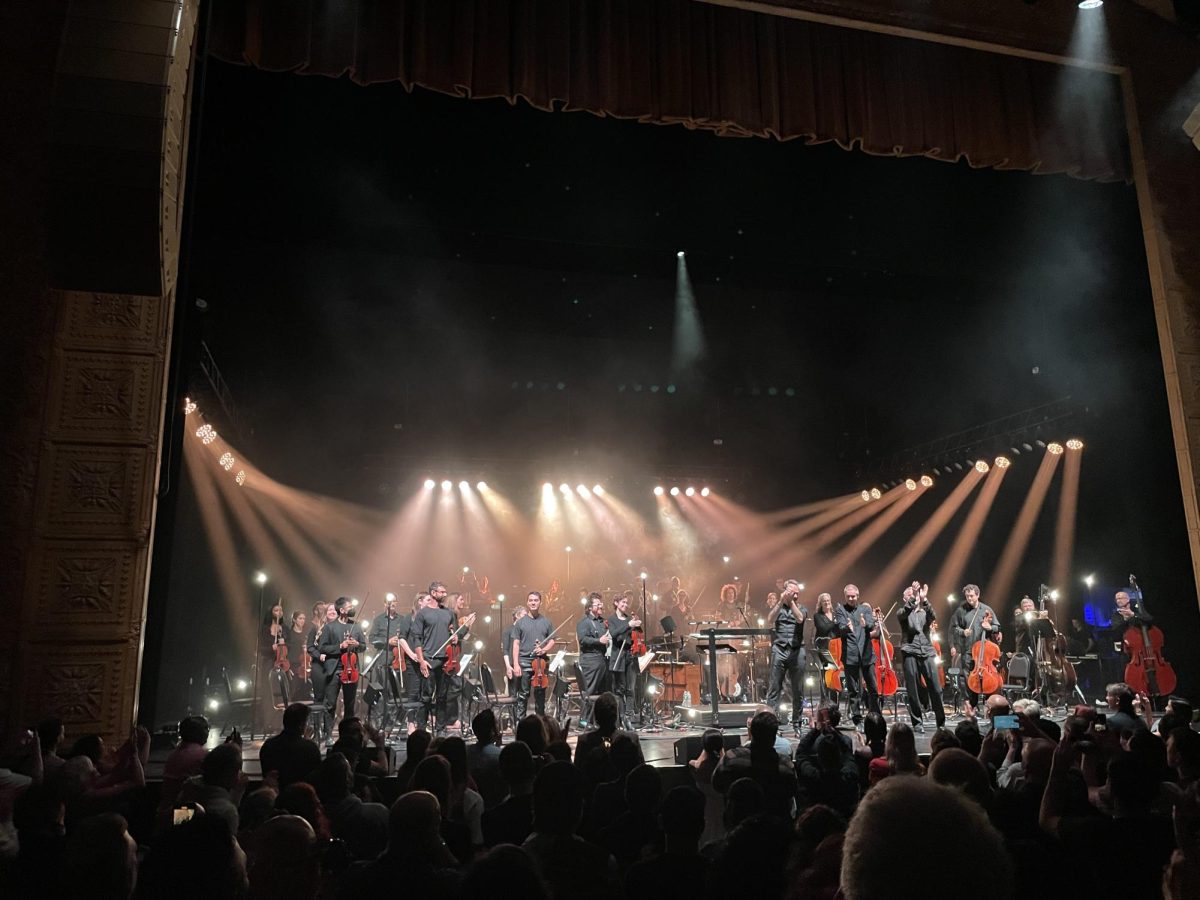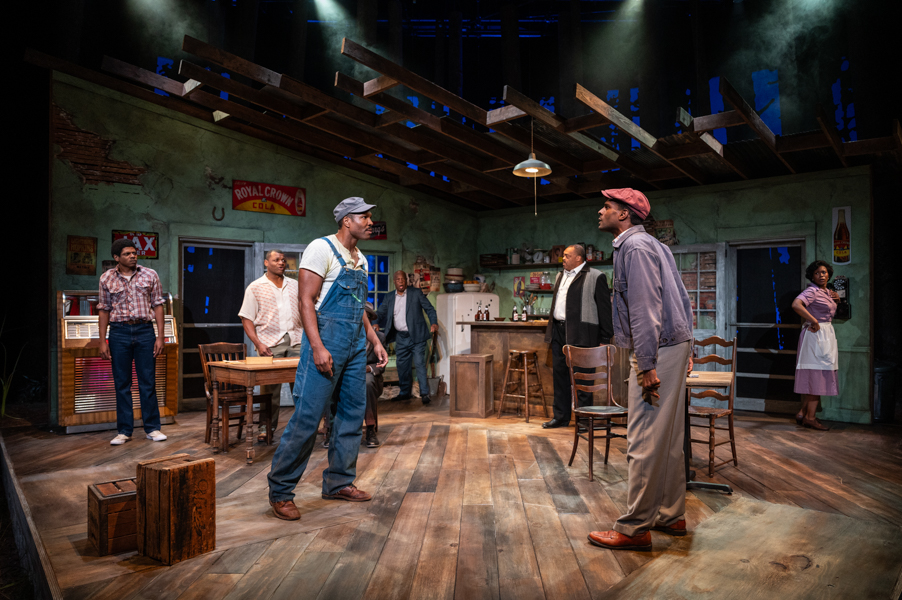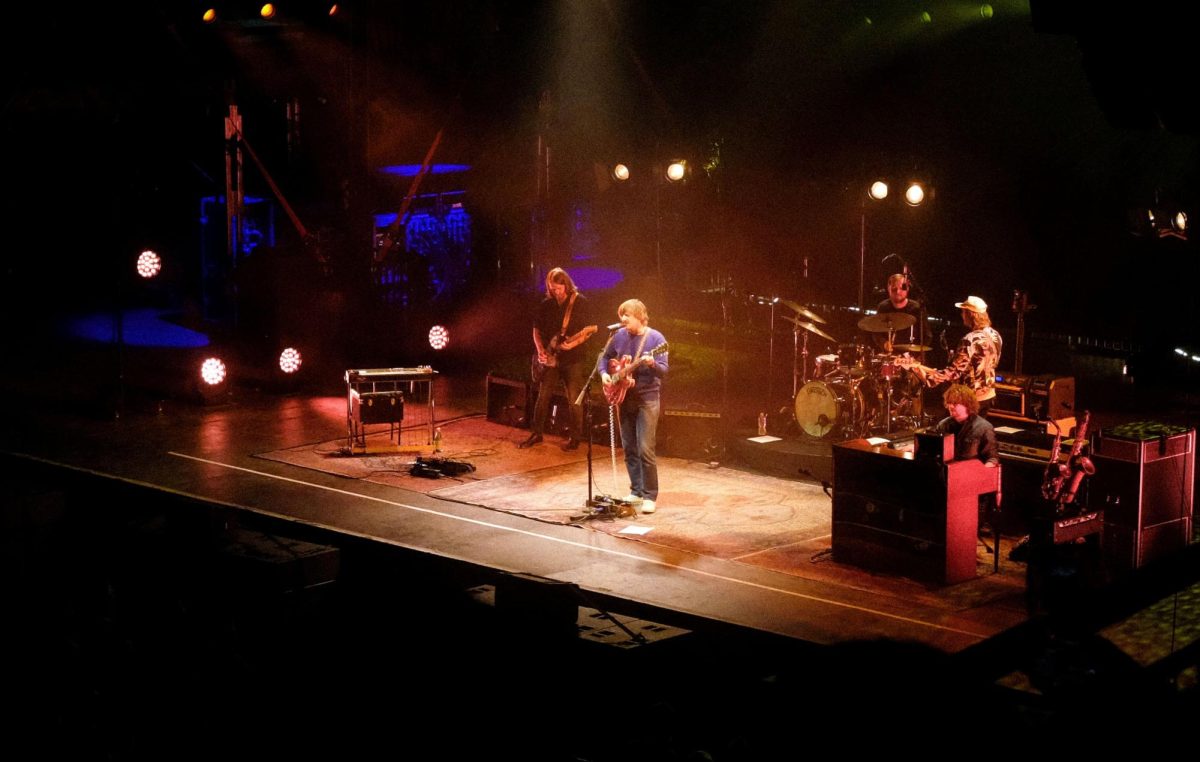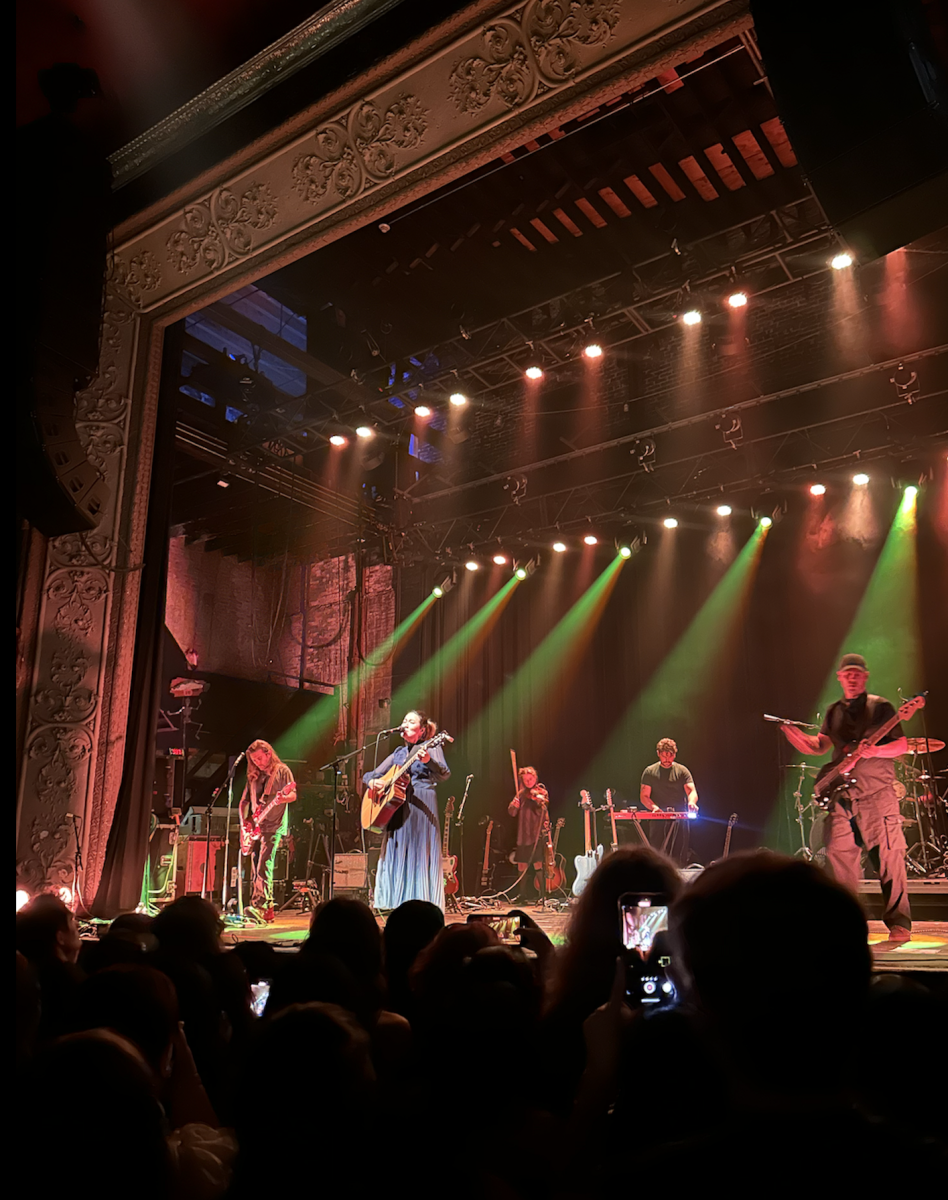For someone who claims he doesn’t listen to music all that much, Liam Hayes is doing a pretty good job making it. As the creative force behind Plush, Hayes has assembled two excellent yet very disparate albums. The first was a plain, somber piano record entitled More You Becomes You, put out by Drag City in 1998 and almost instantly forgotten upon its release. In a slight 28 minutes, Hayes worked his falsetto to brilliant effect as he gently coaxed the melodies from the piano. It’s one of the few genuine triumphs of minimalism I’ve heard in recent years.
Rather than become discouraged by an indifferent reception, Hayes envisioned an even grander follow-up. The result, Fed, was licensed this past February to After Hours, a small Japanese label, and he just recently completed a tour of the country. The album, which should see release in the United States some time in the near future, is a stunning testament to Hayes’ gifts as a songwriter—whether he’s tackling the guitar stomp of “Greyhound Bus Station” or easing into the laidback lounge fare of “Sound of San Francisco.” Fed is so varied that some might accuse Hayes of self-indulgence. However, to my ears, each horn, wind, and string arrangement perfectly suits the songs rather than coming off as haughty showmanship. Following a brief e-mail exchange, Hayes and I had a casual yet revealing telephone conversation. He discussed everything from his labor-intensive recording habits to Plush’s ever-rotating lineup. What follows is a somewhat abridged transcript.
Chicago Maroon: Your Chicago gig in June was your first in a few years. Is it fair to say that you prefer recording to playing live?
Liam Hayes: I like them both, but I probably have done more recording.
CM: Is there something that’s prevented you from playing live?
LH: I suppose it’s partly had to do with supporting the recording. It’s been easier with this record because it’s been a group sort of sound. I’d be happy to perform these songs more.
CM: So it’s not that you don’t enjoy playing live.
LH: I don’t always, but it can be rewarding.
CM: I know you’re no longer with Drag City, but I’m a bit unclear as to what transpired. Did your relationship fall apart as you were making the album or was it more a financial consideration to leave the label?
LH: As the record got further into production and started to add up, it got to where it wasn’t going to make sense for either of us.
CM: So you still maintain the relationships there. No hard feelings?
LH: I don’t think there are any bad feelings, at least on my end. I’ve talked to them since and it’s fine.
CM: The songs on your new album are pretty dense. In that respect, Fed is the polar opposite of your first album, More You Becomes You, which was basically just you and a piano. Was that a conscious decision on your part to show your range?
LH: I suppose I’m surprised now that I can stand them next to each other. I think that’s just the way it happened. I wasn’t deliberately setting out to make it in a different way. The songs themselves are different structurally in a lot of ways. That’s part of it. Even if the other record had been done with a group approach, it still would have been different for that reason.
CM: Did you record the first album a number of different ways? Did you record it with a full band and then decide to go a different route or were the songs always spare piano pieces?
LH: I think I may have tried to do a few of them with a group. It just didn’t seem like that’s what made the most sense.
CM: I guess the other reason I say that the two albums are polar opposites is because that one seems like a warts-and-all approach. It sounded like it was done in one take and you reinforced that with the bit at the end of the album where you can actually be heard walking out of the room. Fed, on the other hand, sounds like a studio album—like it was painstakingly assembled. Is that what you had in mind? Did you try to make that first album sound like it was done in one take?
LH: My initial approach to it was to do it as a performance and I’m glad you and other people have heard it as that, but that was quite an involved process as far as recording went. Even though in terms of the instrumentation there were a lot of things that were sticking out or begging for attention that in a way made it harder because it’s more naked and more apparent what’s happening at each moment. Think of it as an invisible orchestra.
CM: What was the genesis of the new songs? Were they originally composed on the piano and then fleshed out or were they assembled in a piecemeal fashion?
LH: You know, I can’t even really remember. Some of them were written on the piano. Others were written on guitar. Some I had seen having arrangements and others I saw closer to what a band would be. As it went into production, it started to take some different turns. I was surprised with how some of the things came out. If you heard some of the original versions—the demos—it was quite different, even the full band versions. So it changed as it went along.
CM: How long was that process? When did the project start and when did it end?
LH: It started after I finished the first record. I started making the demos and then tried a few sessions with a group in the studio. Then I really started it in earnest in ’99 and it ended sometime in 2001.
CM: And were you working continuously?
LH: I wasn’t working every day for three years—just as much as time and money would allow. Certain periods were more intensive.
CM: I know Steve Albini engineered some of the tracks on the album and I was wondering why you chose him. I mean, he’s primarily known for his work with guitar-heavy bands and it seems like an unlikely pairing.
LH: Put simply, he’s a great engineer. I think people may mistakenly associate him with one thing, but if you’re as good an engineer as he is, you can record a piano or an orchestra. The attention he paid to recording the piano was pretty impressive. He put a lot of thought into it and I think he got the best sound out of anyone who had attempted it.
CM: I know you’ve performed with a core group of musicians, but from what I understand they don’t have a hand in the creative process. How do you envision Plush? Do you think of it as a solo vehicle or as a band or is it simply in a constant state of flux?
LH: Well, I’m the one person that’s survived it. Hopefully, I’ll continue to. [laughs]
CM: Yeah, then Plush will really be in trouble.
LH: I don’t know what it is that I’m surviving: other people or myself.
CM: Right, but you have a touring band?
LH: For these shows, there’s a band. This has been a good group.
CM: But they’re not Plush, are they?
LH: If they want to be, sure.
CM: So Plush has been in existence since 1994, but your output has been pretty sporadic. Is that due to the creative process or is it a funding issue?
LH: I suppose part of it is how the songs get recorded and a bigger part is the songs themselves. I’ve worked to edit myself quite a bit. If I was accustomed to working more frugally and didn’t edit myself as much, then I probably could have probably put a couple of records between the ones I’ve done.
CM: So you’re saying you have a lot more material than what’s actually out there for public consumption.
LH: Right. I put the songs through crash tests and see if they’re going to hold up and I don’t feel that everything I do is worth putting out.
CM: So if someone came up to you tomorrow and gave you an unlimited supply of money, you don’t think that you’d be putting out a lot more. That’s not what’s preventing you. It’s the self-editing aspect.
LH: It’s not that I’m not continuing to write songs regularly. It’s just that the energy and the money that it takes to put down and record something is not something that I take lightly.
CM: Your recent album seems pretty out of step with current trends. It doesn’t sound like anything else being produced today. Do you not listen to today’s artists or is it that you identify more with stuff in the past?
LH: I don’t listen a lot of music as a rule. Maybe someone will play something for me that I like or maybe I’ll hear something in passing. I mean, I know people who enjoy getting music and listening to lots of music. It’s fun to visit someone who has invested in a nice stereo setup and the recordings to play on it. But for me, because I play music, listening to music a lot isn’t a pastime. It’s not a leisure activity.
CM: Is that because you spend so much time doing it that it can feel like a job and so you don’t get the same joy out of listening?
LH: No, but there’s lots of other things besides listening to music. Sometimes it’s enjoyable not to hear anything—your music or anyone else’s. This isn’t to say that I don’t enjoy [listening to] music, but it’s not something I’m actively pursuing on a daily basis.
CM: In an email before this interview, you said that More You Becomes You is a sort of conversation between two people whereas Fed is more of a performance piece. How does that change the obligation of the artist in your opinion? In other words, how does that alter your approach to the music?
LH: I think that what I said in the email is how I saw it after it was created rather than what I was thinking at the time. I mean, I think that’s what it sounds like. When you’re doing something that’s just yourself and an instrument, it automatically becomes more personal. The more recent one could be for one person too, but it might be overkill.
CM: I understand you made a cameo in High Fidelity.
LH: I was in that movie and I’m flattered that you call it a cameo. (laughs) I don’t think most people would know who I am.
CM: I haven’t seen it in a while and I was just wondering how it came about.
LH: The director (Stephen Frears) was given my record and liked it and thought it would be nice to have a piano player.
CM: So it was like having a fan approach you. He genuinely enjoyed your music.
LH: Yeah, he did. It was fun to be able to pretend that I was playing while all these other people on the set pretended to listen. (laughs)
CM: You’re also in the process of trying to release Fed in the United States right now. What are you looking for in a record deal? And do you know how long it will take before it hits the shelves?
LH: The reason it came out in Japan first is because they were willing to show earnestness and make it a priority and because of what went into the record, I really couldn’t take anything less than that—from a label here or anywhere. That’s what we’re looking for: somebody that’s willing to take a risk on it and make it as much a priority as our friends in Japan did.
CM: And you’re still actively pursuing a deal? You don’t have any idea how long it’ll take to come out?
LH: I wish I could tell you there is something definite. At the moment, there are some possibilities, but I wouldn’t want to speculate until it was certain.







